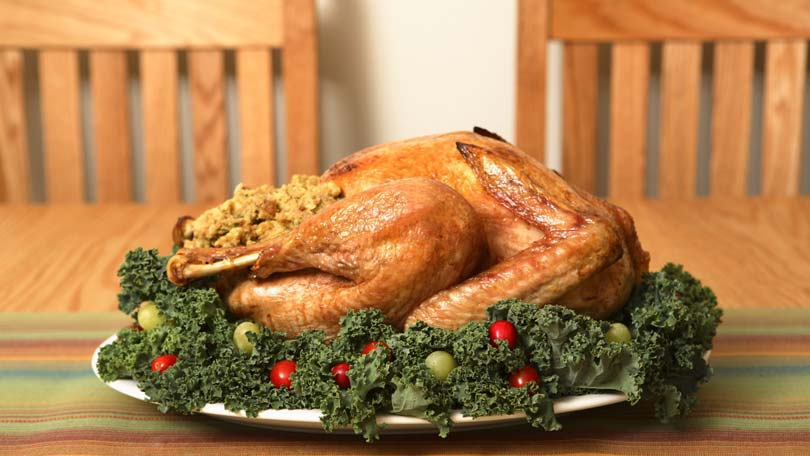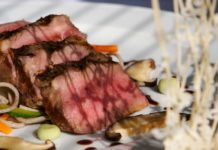
Choosing a turkey for a special meal – be it the holidays or just a large family get-together – used to be an easy task. Dad would go out to the barn, grab the fattest bird, kill it, and hand it over to Mom for plucking and preparation. Before long, the pleasant smell of roast turkey would fill the kitchen and, indeed, the entire house. Eventually, the turkey would land on a huge platter, awaiting the carving process, which would produce succulent slices enjoyed by the whole family.
These days, however, most people don’t kill their own turkey. They simply head to the supermarket to make their selection. And while frozen turkeys were the bird of choice for many decades, more and more consumers are turning to fresh when its time to choose.
Decisions, Decisions
Recent surveys show that the competition between fresh and frozen is currently running neck and neck’ or gizzard to gizzard, so to speak. With the recent emphasis on healthy foods, many people have switched to fresh.
So what do fresh turkeys have that frozen ones don’t? Why do consumers think that eating a fresh turkey is healthier than eating a frozen bird? Typically, especially nowadays, turkeys that are dubbed ‘fresh’ tend to also be free-range or organic turkeys. This means they weren’t raised in barns but, before they wound up in your supermarket’s refrigerator, they were allowed to roam free in an area where they could take advantage of a variety of natural foods like grass and flowers, not just feed corn. Some, specifically the organic type, were fed only on organically-grown foods and are most likely antibiotic-free, which is usually indicated on the package. (Antibiotics are used to make the animals plump.) These turkeys are killed, processed, chilled to around 26 degrees F, and then sold quickly to ensure freshness.
Frozen birds, on the other hand, are generally raised in a barn with lots of other turkeys, given antibiotics to increase their weight, and, upon being killed, are flash-frozen to a temperature of about 30 degrees (F) below zero. As long as they are kept frozen, they can be stored in your home freezer indefinitely, though the longer they’re kept, the dryer they may be.
Taste – Fresh vs. Frozen Turkeys
Most chefs and cooking experts will tell you that neither type of bird is better than the other, though environmentalists will usually opt in favor of the fresh turkey. The choice usually comes down to a few important issues. The first is taste.
These days, especially if you’re under 40-50 years old, you’re probably accustomed to the sweet taste of a frozen turkey. Chances are that when you sink your teeth into your first fresh bird, you’ll notice a definite difference, usually caused by the fresh turkey’s natural diet. Most describe the taste as more ‘Gamey’ than that of the frozen turkey. The texture tends to be a bit different as well.
Fresh turkeys, especially organically-fed birds, cost more than frozen turkeys. Organic food is expensive so the price is passed on to the consumer. The perishability of the turkey and the special handling necessary also comes into play when cost is determined.
Just prior to the holidays, when turkey is a popular main course, you’ll most likely find plenty of sales of frozen turkey and turkey breasts, but generally not on fresh turkeys. If cost is a factor, whole frozen turkeys can often be purchased at a very reasonable price, making it perfect for even budget-minded families.
Convenience
Frozen turkeys can be purchased a few weeks in advance of the meal for which the bird is to be served. It can be stored in your freezer and defrosted gradually in the refrigerator (about 1 day per every 5 pounds). Frozen turkeys are also more readily available.
Fresh turkeys should not be purchased more than a day or two before it’s to be served and it needs to be kept in the coldest portion of the refrigerator, most often the bottom shelf in the rear of the unit. Anything beyond 3 days is considered an unsafe time period. That means you’ll need to purchase the bird just prior to the meal for the best results.
Preparation
If you adhere to all the buying and storing guidelines mentioned above, the preparing and cooking the two birds is essentially the same. Everyone has their own special way of seasoning the turkey and cooking time is essentially the same, as long as the frozen turkey is completely thawed.





